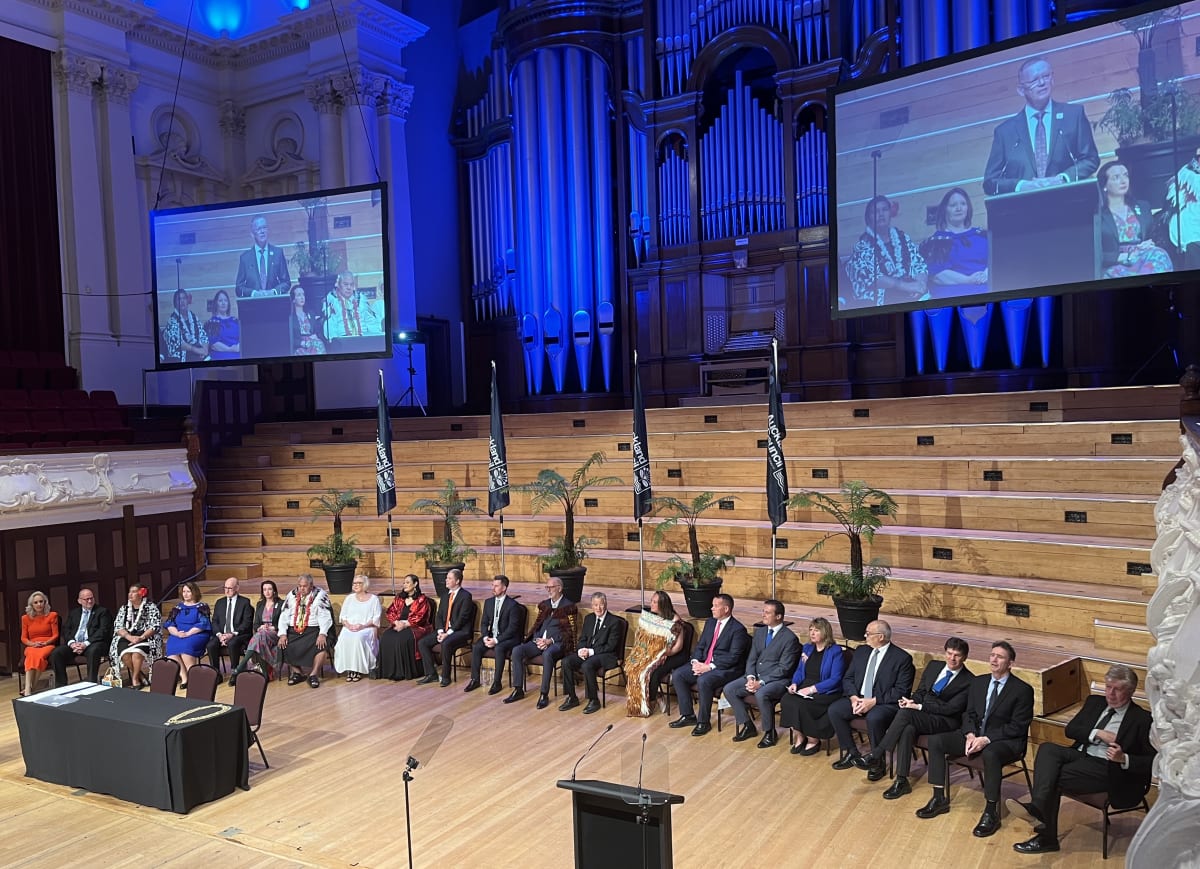Wayne Brown’s Budget Emergency | Newsroom

Tim Murphy
Tim Murphy is co-editor of Newsroom. He writes about politics, Auckland, and media. Twitter: @tmurphynz
Auckland
Mayor Wayne Brown and the new council get their first chance at ‘fixing’ Auckland when this week’s first business meeting grapples with a $270m shortfall in next year’s budget
Auckland Council has confirmed a $270m hole in its finances for 2023 and set its councillors an urgent task to raise charges and rates, sell assets faster, delay capital spending or borrow more to cover it.
The gap between the council’s projected income and expenditure for next year is worse than a worst-case scenario signalled in its budget passed just four months ago.
Higher than expected inflation and interest rates mean the deficit widened to a total of $270m, from the budget’s forecast $90m needed in savings, with a top prediction then of $150m should the economy and operating revenues go south.
They went south, fast. The financial black hole is described in an officers’ report as “an unmitigated operating budget gap”.
This financial hole is not as great as the one filled by the previous mayor and council at the beginning of 2020 when the pandemic slashed the council’s port, airport, public transport and other streams of income. Urgent capital needs from Watercare to prevent the city running dry the following summer also impacted that budget.
Then, councillors fossicked behind the city’s sofa and found a cool three quarters of a billion in cuts, sales and savings to plug the hole. It planned 1100 job losses (of staff and contractors).
Since then the council has aimed to find $90m a year in savings, with $70m in annual sales of non strategic assets.
It hasn’t been enough.
At Thursday’s first business meeting of the Governing Body (mayor and 20 councillors) another emergency budget process will begin. Next month, the new Mayor Wayne Brown will need to issue his proposed fix, albeit of problems not specified by him directly in his campaign to Fix Auckland.
He warned at his inauguration that the city’s “storm” was already here, and having campaigned on what he labelled bloated costs and over-staffing, will no doubt aim squarely at the council’s bureaucracy.
Brown claims this can be done without cutting staff at the frontline – instead targeting overpaid middle and senior executive tiers – or affecting services for the public.
But a council briefing for Thursday’s meeting reminds Brown and councillors that: “As costs are a function of delivery, this would likely require some noticeable and material changes to some services provided by Auckland Council, its council-controlled organisations and/or other entities.”
The report says councillors have seven “levers” to pull to produce more income or to cut costs.
These are:
– using some of the council’s remaining debt facility, which is high but not maxed out, to cover capital spending, thus freeing some other money to be spent on operations
– increasing the 2023/24 general rates by more than the 3.5 percent already forecast (general rates being just part of what ratepayers face – with special rates the 2022/23 figure was on average closer to 6 percent up)
– further asset sales, this time including the possibility of selling part or all of strategic assets like Auckland Airport shares or perhaps part of the Port of Auckland Ltd. Public consultation would be required on such sales
– delaying more capital expenditure (beyond the $230m of works put off last year)
– increasing council fees and charges (resource and building consents, parking charges and fines, dog registrations, pool entry prices etc)
– further cuts to operational expenditure (such as the “head office” reductions mooted by Brown, with whatever effect that might have on public services)
– and trying to persuade the central government to come to the party with “funding changes”
That final lever sounds like the least likely. A review of local government has only just landed and any change to rating policies or councils’ ability to take money from the public are not even formed, let alone ready for a decision.
One of the conditions council officers suggest is that options in their next report do not impose “too high a burden on ratepayers or create unacceptable shocks for them in the short or long term”.
That report would try to target options that retain confidence of the debt rating agencies, are sustainable (don’t provide a one-year quick fix and leave the problem for future years), and can be executed in time for the public consultation early next year and council adoption by June 2023.
Brown has spoken often of the council’s direct budget problems being put at further risk by an expected cost over-run at the $4 billion City Rail Link project, which has been half funded by the council and the Government. He says the CRL company has not told the council or its shareholding ministers what that over-run could be.




